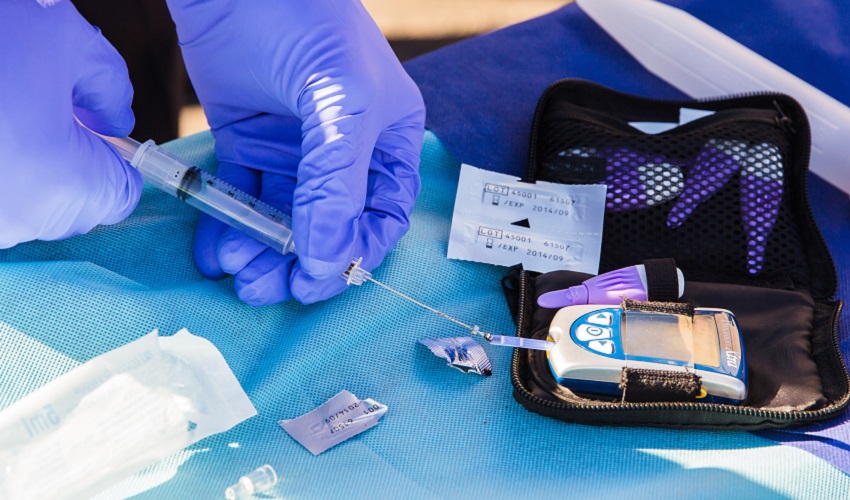Living with diabetes requires careful management and adherence to a treatment plan, including medication adherence. Medication adherence plays a crucial role in controlling blood sugar levels, preventing complications, and improving overall health outcomes. However, many individuals with diabetes face challenges in maintaining consistent medication routines. This article aims to provide comprehensive guidance and strategies for both diabetic patients and their caregivers to promote medication adherence and establish a routine effectively.
Understanding the Importance of Medication Adherence
Living with diabetes can have significant impacts on health, and medication adherence plays a vital role in managing the condition effectively. Diabetes is a chronic disease characterized by high blood sugar levels, resulting from either insufficient insulin production or the body’s inability to use insulin effectively. Uncontrolled diabetes can lead to various complications, including heart disease, kidney damage, nerve damage, and vision problems (American Diabetes Association, 2021).
Medications prescribed for diabetes management are designed to help regulate blood sugar levels, enhance insulin sensitivity, and slow down the progression of the disease. Adhering to medication regimens as directed by healthcare professionals is crucial to achieving optimal glycemic control, preventing complications, and improving quality of life (American Diabetes Association, 2021).
Failure to adhere to medication regimens can have serious consequences. Poor medication adherence can result in uncontrolled blood sugar levels, increased risk of diabetic complications, hospitalizations, and decreased overall well-being.
Identifying Barriers to Medication Adherence
Understanding the barriers that hinder medication adherence is essential to develop effective strategies to overcome them. The following are common barriers faced by individuals with diabetes:
Lack of Understanding or Awareness: Many individuals with diabetes may not fully understand the importance of medication adherence or the consequences of non-adherence. Lack of awareness about the potential risks and benefits of medications can lead to inconsistent or improper medication use.
Cost and Affordability: The high cost of medications can be a significant barrier to adherence, especially for individuals with limited financial resources or inadequate health insurance coverage. Affordability challenges can result in skipped doses or medication rationing.
Side Effects and Concerns: Some individuals may experience side effects from their diabetes medications, such as gastrointestinal discomfort, weight gain, or low blood sugar. These side effects can discourage adherence. Additionally, concerns about potential long-term effects or drug interactions may contribute to non-adherence.
Complex Regimens and Forgetfulness: Managing multiple medications and incorporating them into daily routines can be challenging. Complex dosing schedules, large pill counts, and forgetfulness can lead to missed doses or inconsistent adherence.
Strategies to Promote Medication Adherence and Establish a Routine
To overcome barriers and improve medication adherence, it is essential to implement effective strategies. The following strategies can help individuals with diabetes establish a medication routine and adhere to their prescribed regimens:
Education and Empowerment
- Importance of Diabetes Education: Diabetes education plays a crucial role in empowering individuals to take control of their condition. Through education, patients gain a better understanding of the disease, its management, and the significance of medication adherence.
- Understanding Medication Purpose and Benefits: Healthcare providers should thoroughly explain the purpose and benefits of prescribed medications to patients. This understanding helps patients recognize the value of adherence and motivates them to follow their medication regimens.
- Collaborating with Healthcare Providers: Establishing a strong partnership with healthcare providers encourages open communication and shared decision-making. Regular follow-up visits allow healthcare professionals to assess medication adherence, address concerns, and provide ongoing support.
Simplifying Medication Regimens
- Tailoring Medication Schedules to Daily Routines: Working with healthcare providers to create a medication schedule that aligns with a patient’s daily routine improves adherence. This may involve taking medications at specific times or linking them to daily activities like meals or bedtime.
- Pill Organizers and Reminder Apps: Using pill organizers and smartphone applications can help individuals organize and remember to take their medications. Pill organizers allow for easy visual tracking of daily doses, while reminder apps provide notifications and alarms to prompt medication intake.
- Using Combination Medications: Combination medications, which combine multiple drugs into a single pill, can simplify medication regimens by reducing the number of pills to be taken. Discuss with healthcare providers whether combination medications are suitable for individual treatment plans.
Addressing Financial Concerns
- Exploring Prescription Assistance Programs: Individuals facing financial difficulties should inquire about prescription assistance programs offered by pharmaceutical companies, nonprofit organizations, or government agencies. These programs can provide access to reduced-cost or free medications.
- Discussing Cost Concerns with Healthcare Providers: Openly discussing cost concerns with healthcare providers allows for exploration of alternative medication options that are more affordable or considering generic alternatives without compromising effectiveness.
- Utilizing Generic Medications: Generic medications can be a cost-effective option for individuals who face financial challenges. These medications have the same active ingredients as brand-name counterparts and meet the same quality standards.
Managing Side Effects and Concerns
- Open Communication with Healthcare Providers: If experiencing side effects or concerns about medication, it is important to promptly communicate with healthcare providers. They can assess the situation, recommend adjustments to the treatment plan, or prescribe alternative medications.
- Reporting Side Effects Promptly: Promptly reporting any side effects to healthcare providers allows for timely interventions or adjustments to medications. It is important not to discontinue or adjust dosages without consulting healthcare professionals.
- Evaluating Alternative Medication Options: In some cases, healthcare providers may consider alternative medications with fewer side effects or better tolerance. Exploring different drug classes or delivery methods can help find a solution that better suits individual needs.
Establishing Supportive Environments
- Involving Family and Caregivers: Including family members or caregivers in medication management can provide valuable support. They can help with organizing medications, offering reminders, and providing encouragement to adhere to the prescribed regimen.
- Online Communities and Support Groups: Engaging in online communities or support groups specific to diabetes management can provide a sense of community, support, and shared experiences. Connecting with others facing similar challenges can offer emotional support and practical tips for medication adherence.
- Engaging in Peer-to-Peer Support: Participating in peer-to-peer support programs, where individuals with diabetes support and motivate each other, can significantly improve medication adherence. These programs foster accountability and create a positive environment for sharing experiences and tips.
Tools and Technologies for Medication Adherence
Advancements in technology have introduced various tools and devices that can assist in medication adherence. These tools can help individuals with diabetes stay on track with their medication routines. Some key examples include:
Medication Reminders and Smartphone Apps
- Features and Benefits: Medication reminder apps provide customizable alarms, notifications, and visual tracking features to help individuals remember to take their medications on time. They can also provide additional functionalities such as tracking blood sugar levels, monitoring physical activity, or logging food intake.
- Popular Medication Reminder Apps:
- Medisafe: A comprehensive medication management app with customizable reminders, pill tracking, and refill alerts.
- MyTherapy: An app that offers medication reminders, symptom tracking, and medication history logs.
- Mango Health: An app that incorporates gamification elements to encourage medication adherence, offering reminders and rewards.
Wearable Devices and Smart Pill Dispensers
- Features and Benefits: Wearable devices, such as smartwatches or fitness trackers, can be programmed to deliver medication reminders and track adherence. Smart pill dispensers offer automated medication dispensing, customizable schedules, and alerts for missed doses.
- Examples of Smart Pill Dispensers:
- Hero: A smart medication dispenser that organizes pills, dispenses doses at scheduled times, and sends notifications to both individuals and caregivers.
- MedMinder: A programmable pill dispenser that provides visual and auditory reminders, sends notifications to caregivers, and offers online tracking of adherence.
Telehealth and Virtual Care
- Remote Monitoring and Medication Management: Telehealth platforms allow for remote monitoring of blood sugar levels, virtual consultations with healthcare providers, and medication management support. These technologies facilitate timely adjustments to medication regimens and enable ongoing support without the need for in-person visits.
- Advantages and Considerations: Telehealth and virtual care options provide convenience, accessibility, and timely interventions. However, it is important to consider factors such as internet access, privacy, and the need for in-person visits for certain healthcare services.
The Role of Caregivers in Medication Adherence
Caregivers play a crucial role in supporting individuals with diabetes in their medication adherence efforts. They can contribute significantly to establishing a routine and ensuring medication compliance. The following are key considerations for caregivers:
Understanding the Caregiver’s Role: Caregivers should familiarize themselves with the medication regimen, including the purpose, dosing instructions, and potential side effects. Understanding the importance of adherence and its impact on overall health can enhance their ability to provide support.
Communicating with Healthcare Providers: Open and regular communication with healthcare providers allows caregivers to stay informed about medication changes, receive guidance on managing side effects, and address any concerns or challenges related to adherence.
Assisting with Medication Organization and Reminders: Caregivers can help organize medications using pill organizers, refill prescriptions in a timely manner, and provide reminders for medication intake. They can also assist in tracking adherence and documenting any side effects or changes in health status.
- Promoting Emotional Support and Encouragement: Caregivers should provide emotional support, encouragement, and reassurance to individuals with diabetes. Understanding the challenges they face and acknowledging their efforts can positively impact adherence and overall well-being.
Overcoming Challenges and Staying Motivated
Maintaining medication adherence can be challenging over time. However, the following strategies can help individuals with diabetes stay motivated and overcome obstacles:
Building a Routine and Consistency: Establishing a consistent medication routine by incorporating it into daily habits or linking it to specific activities helps reinforce adherence. Setting reminders or alarms can assist in maintaining consistency.
Setting Realistic Goals and Tracking Progress: Setting achievable goals related to medication adherence, such as maintaining a specific adherence rate or tracking blood sugar levels, can provide motivation. Regularly tracking progress and celebrating achievements reinforce positive behaviors.
Celebrating Achievements and Rewards: Recognizing and rewarding adherence milestones can provide a sense of accomplishment and motivation. Rewards can be anything from small treats to engaging in enjoyable activities.
Medication adherence is vital for effective diabetes management and improved health outcomes. By understanding the importance of adherence, identifying barriers, and implementing strategies to promote medication routines, individuals with diabetes can take control of their health. Caregivers also play a crucial role in supporting medication adherence and providing emotional support. With the assistance of tools and technologies, such as medication reminder apps and smart pill dispensers, individuals can enhance their adherence efforts. By overcoming challenges and staying motivated, individuals can establish a routine that leads to better diabetes control and overall well-being.




